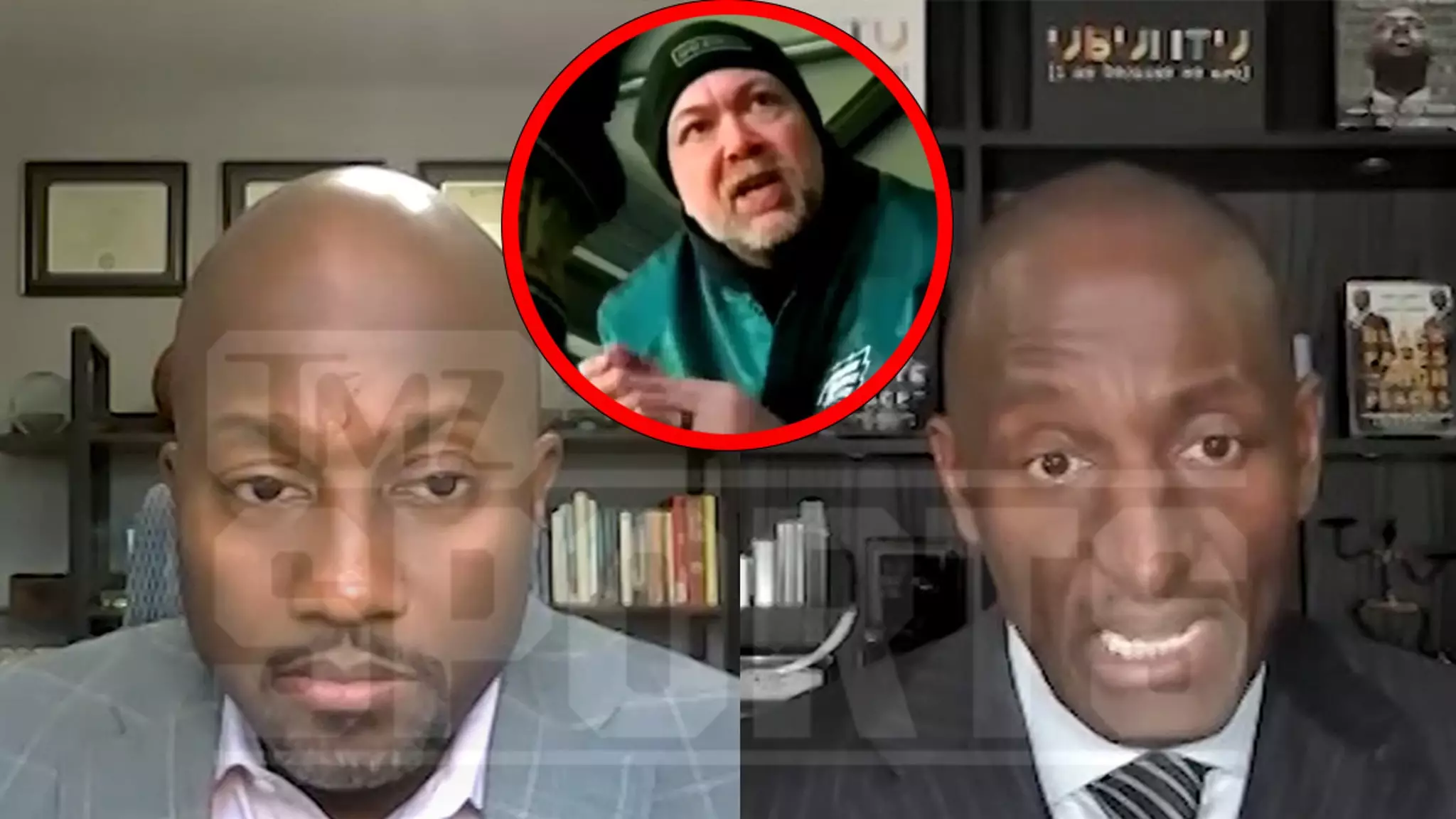In an age where social media amplifies voices—both good and bad—an incident involving an Eagles fan’s mistreatment of a Packers supporter has triggered not only public outrage but also consequences in the professional realm. A now-viral video surfaced, capturing a heated exchange where Ryan Caldwell, a project manager at BCT Partners, unleashed a barrage of insults, directing a derogatory comment toward the Green Bay fan. The video shocked many, leading to intense scrutiny of Caldwell and his employer, shedding light on workplace ethics and personal accountability.
The reaction from BCT Partners was swift and indicative of a company holding its employees to a moral standard. Co-founders Lawrence Hibbert and Dr. Randal Pinkett, both of whom are notable figures in the business world, expressed their disgust at Caldwell’s behavior. “It was abhorrent,” Pinkett remarked, emphasizing the disconnection between Caldwell’s actions and the company’s values. The swift decision to investigate Caldwell’s conduct underscores the importance of corporate responsibility in the face of an employee’s misdeeds that attract public attention.
The co-founders confirmed that their investigation was both thorough and fair, distancing the organization from the negative implications stemming from Caldwell’s actions. They faced social media backlash as users connected Caldwell’s behavior to BCT Partners, portraying the company as complicit. This highlighted how an individual’s actions could tarnish a corporate reputation, necessitating a transparent, consistent, and swift response.
Hibbert pointed out the challenges that arose amid the backlash, noting that the last few days were “really difficult” for the company. This incident raises questions about public a response to such transgressions, illustrating the dual-edged sword of digital communication. While social media can serve as a platform for accountability, it also fosters a toxic environment where reactions can become extreme, sometimes lacking the grace for redemption or growth, as Pinkett noted.
This narrative captures a cultural dilemma: the challenge of finding a middle ground in public discourse, where individuals are encouraged to learn from mistakes rather than face premature cancellation. It is essential for society to foster discussions around growth and rehabilitation, not just punishment. Acknowledging that people can learn from their actions is crucial for nurturing a more compassionate public atmosphere.
While Caldwell has yet to publicly address his behavior or its fallout, the situation serves as a potent reminder of the impact of one’s words and actions. Both Hibbert and Pinkett emphasize that accountability is not merely about punitive measures but also about fostering a culture where learning and growth are prioritized. They affirmed their commitment to their values, stating, “We believe that we can recover from mistakes, we can learn and we can grow.”
This incident is more than just a viral moment; it reflects ongoing societal conversations about our collective responsibilities, the weight of public scrutiny, and the pathways to redemption. The real test lies in how we navigate these incidents going forward, ensuring that there is space for forgiveness, learning, and improved behavior—an essential balance in today’s complex social landscape.

